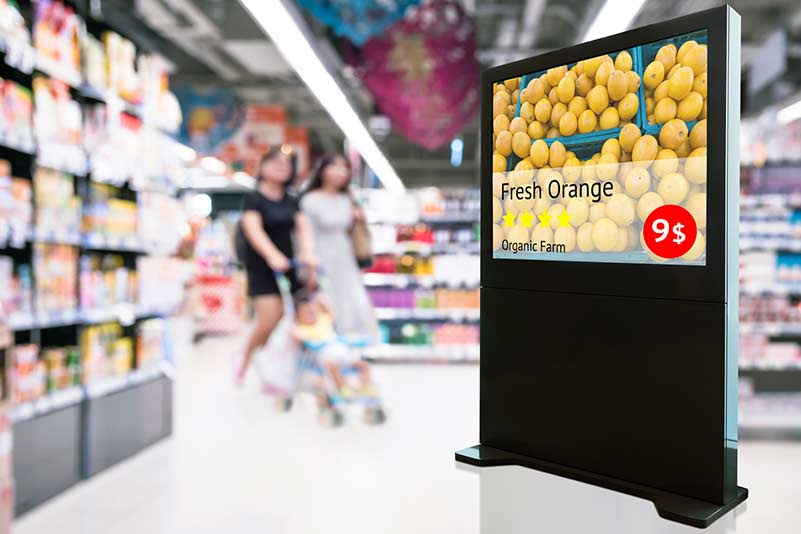In an increasingly competitive food industry landscape, businesses are constantly seeking innovative strategies to boost sales and gain a competitive edge. One such strategy that has gained significant traction in recent years is the integration of Artificial Intelligence (AI) technologies into sales operations. From personalized marketing to demand forecasting, AI offers a multitude of opportunities for food industry players to maximize their market potential and drive growth. In this article, we'll explore key strategies for leveraging AI in food industry sales to achieve sustainable success and profitability.
-
Personalized Marketing Campaigns:
One of the most powerful ways AI can be utilized in food industry sales is through personalized marketing campaigns. AI algorithms can analyze vast amounts of consumer data, including purchase history, preferences, and behavior patterns, to create highly targeted and personalized marketing messages. By understanding individual customer preferences, businesses can tailor their marketing campaigns to resonate with specific segments of their target audience. Whether it's sending personalized emails, recommending relevant products on e-commerce platforms, or serving targeted ads on social media, AI enables food businesses to engage customers more effectively and drive conversion rates.
-
Dynamic Pricing Optimization:
AI-powered dynamic pricing optimization is another effective strategy for maximizing sales in the food industry. By analyzing market dynamics, competitor pricing strategies, and demand fluctuations in real time, AI algorithms can optimize pricing strategies to maximize profitability while remaining competitive. Dynamic pricing enables businesses to adjust prices dynamically based on factors such as demand levels, inventory levels, and even external factors like weather conditions. Whether it's offering flash sales, personalized discounts, or implementing dynamic pricing models, AI empowers food businesses to implement pricing strategies that drive sales and maximize revenue.
-
Demand Forecasting and Inventory Management:
Accurate demand forecasting is essential for optimizing inventory levels, minimizing stockouts, and reducing wastage in the food industry. AI-powered demand forecasting and inventory management systems analyze historical sales data, seasonality patterns, and external factors such as weather conditions to predict future demand with precision. By leveraging AI-driven insights, food businesses can optimize inventory management, streamline supply chain operations, and ensure that the right products are available at the right time to meet customer demand. This not only enhances customer satisfaction but also reduces costs and improves overall operational efficiency.
-
Customer Relationship Management (CRM):
AI-driven Customer Relationship Management (CRM) systems play a crucial role in enhancing sales effectiveness in the food industry. These systems centralize customer data from various touchpoints, including online orders, loyalty programs, and social media interactions. By analyzing this data, businesses can gain valuable insights into customer preferences, behavior, and feedback, enabling them to tailor their products and services to meet individual needs. AI-powered CRM systems enable businesses to deliver personalized recommendations, resolve customer issues promptly, and solicit feedback for product improvements, thereby building stronger relationships with customers and driving repeat sales.
-
Predictive Analytics for Sales Forecasting:
Predictive analytics powered by AI is a powerful tool for sales forecasting in the food industry. These algorithms analyze historical sales data, market trends, and other relevant factors to forecast future sales with accuracy. By leveraging predictive analytics, food businesses can anticipate demand fluctuations, identify growth opportunities, and make informed decisions about resource allocation and strategic planning. Whether it's expanding product offerings, entering new markets, or launching promotional campaigns, predictive analytics enables businesses to maximize their sales potential and achieve sustainable growth.
Conclusion:
In conclusion, AI presents a wealth of opportunities for food industry businesses to maximize their market potential and drive sales growth. From personalized marketing campaigns to dynamic pricing optimization, demand forecasting, CRM, and predictive analytics, AI-powered technologies offer innovative solutions for enhancing sales effectiveness and driving profitability. However, successful implementation of AI strategies requires careful planning, investment in technology infrastructure, and a deep understanding of customer needs and preferences. By embracing AI-driven approaches, food businesses can unlock new opportunities for growth, innovation, and success in today's competitive marketplace.


No comments yet